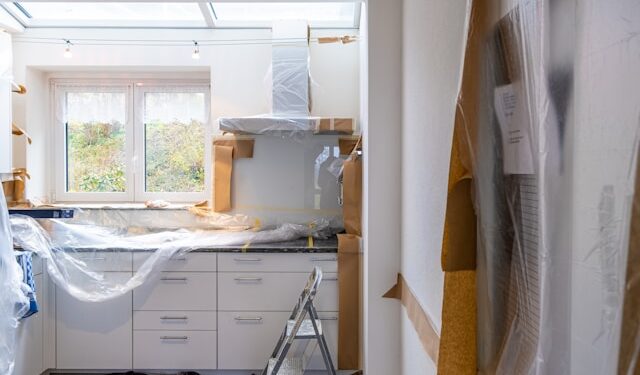Renovating your home can be an exciting yet overwhelming experience. Whether you’re tackling a major remodel or making minor upgrades, avoiding common home renovation mistakes is crucial to ensuring a smooth and cost-effective project. Poor planning, hiring the wrong contractors, and ignoring essential structural issues can lead to expensive problems down the road. To help you navigate your renovation successfully, here are the biggest mistakes homeowners should avoid.
1. Poor Planning and Budgeting
One of the biggest home improvement mistakes is underestimating costs. Many homeowners start a renovation project without a clear budget, leading to financial strain when unexpected expenses arise. Always set a realistic budget that includes a contingency fund for unforeseen costs. Research material prices and labor rates beforehand to avoid running out of money mid-project.
2. Ignoring Permits and Regulations
Skipping building permits might seem like an easy way to speed up a renovation, but it can lead to serious legal trouble. If your home renovation doesn’t comply with local building codes, you may face fines or be required to redo the work. Before starting, check with your local municipality to ensure you have all the necessary permits to avoid costly setbacks.
3. Choosing the Wrong Contractors
A common renovation mistake is hiring contractors based on price alone. While saving money is important, choosing an unqualified contractor can result in poor craftsmanship and delays. Always check references, read reviews, and verify credentials before signing a contract. Having a detailed agreement outlining the scope of work, timeline, and payment terms will protect you from potential disputes.
4. Overlooking Structural Issues
Many homeowners focus on cosmetic updates while ignoring foundational problems. Failing to address roofing, plumbing, or electrical issues before starting aesthetic upgrades can lead to major repairs later. Prioritize home maintenance essentials before making changes to flooring, cabinetry, or paint.
5. Following Trends Over Functionality
Trendy designs can quickly become outdated, making it harder to sell your home in the future. When renovating, balance aesthetics with long-term value by choosing timeless designs. Instead of investing in short-lived trends, focus on features that enhance both style and practicality.
6. Poor Space Planning
Home layout mistakes can lead to inefficient use of space, particularly in kitchens and bathrooms. Ensure there’s enough clearance for cabinets, appliances, and furniture to avoid a cramped layout. Consulting with a professional designer can help optimize your home’s functionality.
7. Using Low-Quality Materials
Opting for cheap materials to cut costs may seem like a good idea initially, but it often results in frequent repairs and replacements. Invest in durable materials that offer longevity and enhance your home’s value. Research different options to find the best balance between affordability and quality.
8. Underestimating the Timeline
A common home remodeling mistake is expecting the project to finish sooner than realistically possible. Delays due to material shortages, weather, or contractor schedules can push back your timeline. Be prepared for unexpected setbacks and factor in extra time to avoid frustration.
9. Taking on DIY Projects Beyond Your Skill Level
DIY home improvement can be cost-effective, but tackling projects beyond your expertise can lead to costly mistakes. Electrical work, plumbing, and structural modifications should be left to professionals to prevent safety hazards and compliance issues.
10. Neglecting Energy Efficiency Upgrades
Many homeowners miss the opportunity to improve energy efficiency during renovations. Upgrading insulation, windows, and appliances can lower utility bills and increase home comfort. Consider eco-friendly materials and energy-efficient solutions to enhance sustainability.
Final Thoughts
Home renovations require careful planning and execution to avoid costly mistakes. By setting a proper budget, hiring reputable contractors, and prioritizing essential repairs, you can ensure a successful remodeling project. Always consider long-term functionality and sustainability to maximize your home’s value. Whether you’re updating a single room or remodeling your entire house, avoiding these common renovation mistakes will save you time, money, and stress.





